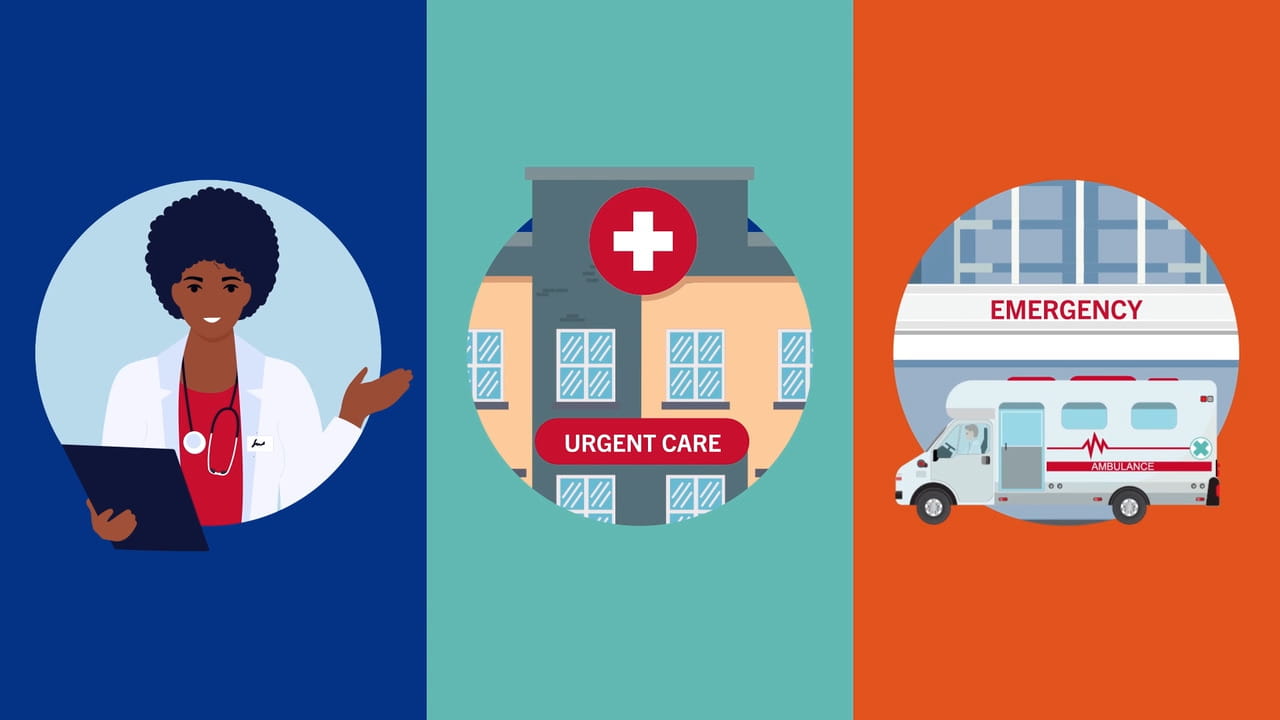Exactly How Urgent Care Facilities Can Save You Time and Money
Exactly How Urgent Care Facilities Can Save You Time and Money
Blog Article
Understanding the Importance of Urgent Treatment Solutions for Non-Life-Threatening Medical Issues
The importance of immediate treatment solutions for non-life-threatening clinical problems can not be overstated, particularly in today's healthcare landscape. By understanding the benefits of immediate care, such as lowered wait times and cost efficiency, one can much better value their duty in patient health and wellness administration.
What Is Urgent Treatment?
Immediate care describes a category of medical solutions created to deal with non-life-threatening problems that require instant interest however do not require a see to the emergency clinic. These centers provide a bridge between main treatment and emergency solutions, providing accessible medical care options for people experiencing severe clinical concerns, such as small fractures, sprains, infections, or severe ailments that occur suddenly.

The scope of services offered by immediate care facilities can vary yet usually includes therapy for usual disorders like colds, flu, and allergies, along with minor injuries (urgent care). Furthermore, lots of immediate care facilities provide preventative services, such as inoculations and physical tests, to address wider wellness requirements. By using a practical alternative for urgent clinical problems, these centers play an important duty in the health care continuum, making certain that clients obtain proper care when they require it most
Advantages of Urgent Care Services
Several people find that using immediate care solutions gives substantial advantages over typical emergency clinic brows through or waiting on a main care visit. One main benefit is the minimized wait times. Immediate treatment centers usually have shorter wait periods, permitting clients to get timely medical attention when they need it most. This expedited care is particularly useful for non-life-threatening problems that call for prompt intervention.
An additional benefit is the prolonged hours of operation. Several urgent care centers are open nights and weekend breaks, accommodating people who may not have the ability to see their medical care doctor throughout normal workplace hours. This adaptability makes it easier for patients to access care at their ease.
Furthermore, urgent treatment solutions typically use a cost-effective alternative to emergency areas. When seeking therapy for small disorders at immediate care centers rather than medical facility emergency departments., individuals often deal with reduced co-pays and general costs - urgent care.
Last but not least, urgent care centers are equipped to take care of a selection of non-life-threatening issues, supplying a wide hop over to here variety of services under one roofing system. This comprehensive approach not only simplifies the therapy procedure yet additionally enhances client contentment by supplying reliable and prompt care.
Common Conditions Dealt With
What kinds of non-life-threatening conditions can people expect to obtain treatment for at immediate care? Urgent care facilities are outfitted to take care of a broad selection of usual medical problems that require punctual interest but do not present an immediate threat to life. These centers commonly treat conditions such as small fractures, strains, and strains, giving necessary care for injuries that happen during everyday tasks or sports.
Furthermore, patients frequently look for treatment for respiratory system infections, including colds, influenza, and bronchitis, where timely intervention can minimize signs and avoid problems. Skin problems such as rashes, insect bites, and small burns are also typically addressed, as timely treatment can mitigate pain and reduce the risk of infection.

Comparing Urgent Care and Emergency Situation Rooms

One considerable distinction exists in delay times; urgent care facilities commonly have shorter delay times compared to emergency clinic, which can be crowded with more important situations. This effectiveness enables clients to receive timely therapy for their disorders.
From a monetary viewpoint, immediate treatment check outs often tend to be much less expensive than emergency area brows through. Insurance coverage copays and out-of-pocket expenses are frequently reduced at immediate care centers, making them an extra affordable selection for non-emergency scenarios.
Just How to Choose an Urgent Care Center
Selecting the best immediate care facility can dramatically boost the top quality of care received throughout a non-life-threatening medical problem. When selecting an immediate important site treatment center, a number of vital elements ought to be thought about.
First, evaluate the center's certification and licensing. Some immediate care centers specialize in certain locations, while others provide detailed care for various medical issues.
Furthermore, consider the place and hours of procedure. A conveniently located center with extensive hours can be essential for timely treatment. It's also advisable to examine the facility's delay times and patient reviews, which can give understandings right into the general person experience.
Verdict
In final thought, urgent care solutions pop over here play a crucial duty in dealing with non-life-threatening clinical issues efficiently. Ultimately, recognizing the relevance of urgent treatment facilities contributes to improved medical care administration and person satisfaction.
 By providing a convenient alternative for immediate medical issues, these facilities play a crucial duty in the healthcare continuum, guaranteeing that individuals receive suitable treatment when they need it most.
By providing a convenient alternative for immediate medical issues, these facilities play a crucial duty in the healthcare continuum, guaranteeing that individuals receive suitable treatment when they need it most.Many people find that utilizing immediate care solutions provides considerable advantages over traditional emergency area brows through or waiting for a main treatment visit. Lots of immediate treatment facilities are open nights and weekend breaks, suiting individuals who might not be able to see their primary treatment medical professional throughout routine workplace hours. Urgent treatment facilities are developed to attend to non-life-threatening conditions, such as minor fractures, infections, and health problems, supplying a practical alternative to emergency spaces for those in need of prompt care. Some urgent treatment facilities specialize in specific areas, while others supply comprehensive treatment for numerous clinical concerns.
Report this page